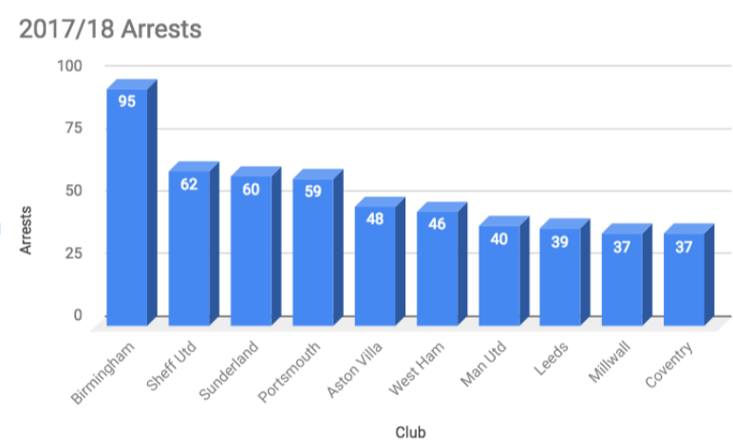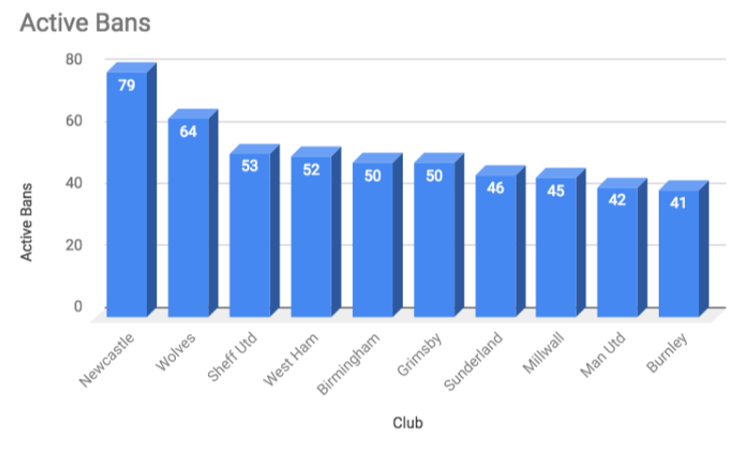The number of football-related arrests continues to drop in England and Wales, according to fresh figures released by the Home Office, which also reveal that football banning orders have decreased for a seventh straight season.
The statistics show that the 2017/18 campaign was the fifth consecutive year in which figures have fallen, while the 1,542 arrests less than half that of the 3,089 arrests that took place back in 2010 - the three most 'popular' types of offence were public disorder (36%), violent disorder (20%), and pitch incursion (12%).
Meanwhile, a total of 460 new football banning orders were issued last season, and the number of active banning orders now in force, 1,822, is significantly lower than the permanent ban tally accumulated back in 2010/11 (3,174).
So, now down to the nitty-gritty: Which teams in the top-five tiers of English football have been responsible for the most arrests, new bans, and active bans?
We take a look below.
Highest Number Of Arrests 2017/18
Look away Birmingham City fans, your club sits at the top of the arrests table for the third season in a row with an alarming 95 supporters arrested last season (see chart below) - more than any other club in England's top-five leagues.
Sheffield United are some way behind in second, but still with a hefty 62 arrests, followed by Sunderland (60), Portsmouth (59), and Aston Villa (48).
Next in the running is the highest-placed Premier League club in West Ham (46), with Man Utd in swift pursuit (40), whereas Leeds (39), Millwall and Coventry (both 37) make up the top-10.
In terms of leagues, the 20 Premier League clubs had 374 arrests, dwarfed by the Championship which had the most arrests with 591.

Highest Number Of Active Banning Orders
As mentioned, the total number of football banning orders has declined for the seventh season on the spin, but unfortunately for Newcastle, the club is top the pile in this particular category with 79 fans banned from matches (see table), ahead of Wolves (64), Sheff Utd (53), West Ham (52), Birmingham and Grimsby (both 50).
Other teams in the top-10 include Sunderland on 46, Millwall on 45, while Man Utd have 42 fans permanently banned, which is one more than Burnley.
New Banning Orders 2017/18
Now over to new bans, with 460 handed out between 1 August 2017 and 31 July 2018, an 11% decrease on 2016/17.
Last season Grimsby Town and Sunderland supporters were delt the highest number of new banning orders (28), with Sheffield United again featuring (25), as do Birmingham (18), with Tranmere making up the top-5 (15).
The report revealed:
“Football banning orders are preventative measures issued by the courts, either following a conviction for a football-related offence or following a complaint by a local police force, British Transport Police, or the Crown Prosecution Service.
“The statutory duration of a football banning order is a minimum period of three years and no more than five years.
“In cases where a custodial sentence was imposed for the original offence, a minimum period of six years and no more than 10 years applies.”
